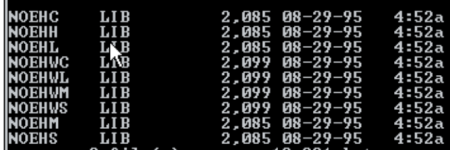Hi Everyone,
So this is a long shot that anyone remembers or even knows about this. WIth Borland C++ 4.0-4.52 (I can't find 4.53 to test though I owned it back in the day), there is a project properties page for exception handling. When I make a simple hello world application, there seems to be no way to turn the exception handling off. It is 40-50K in size instead of the typical 10K size that it should be. Looking at the map file shows that it has a bunch of functions for exception handling which look like they are also pulling in a string class which explains the extra size, but how to disable it? I've tried everything I can think of. I'm surprised is no one noticed this back then.
So this is a long shot that anyone remembers or even knows about this. WIth Borland C++ 4.0-4.52 (I can't find 4.53 to test though I owned it back in the day), there is a project properties page for exception handling. When I make a simple hello world application, there seems to be no way to turn the exception handling off. It is 40-50K in size instead of the typical 10K size that it should be. Looking at the map file shows that it has a bunch of functions for exception handling which look like they are also pulling in a string class which explains the extra size, but how to disable it? I've tried everything I can think of. I'm surprised is no one noticed this back then.

